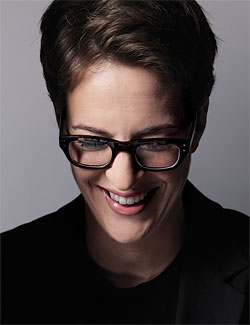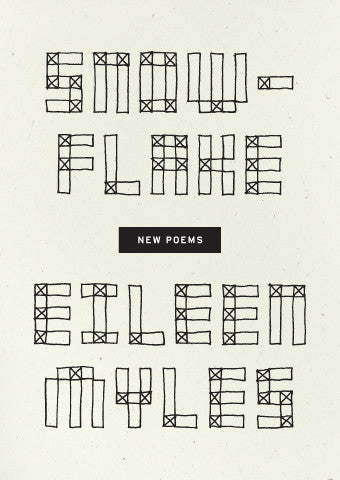 Let's get all of the gushing out of the way first: Rachel Maddow is fucking adorable, and everyone and their mom has a crush on her. Okay. Moving on. Maddow's debut book, Drift, is about how the United States military has grown over the last 40 years and how the constitutional restrictions that once prevented any one American from declaring war on another country have disappeared. Drift is textbook-comprehensive, covering nuclear weapons, post-Vietnam policy changes, and the evolving power of the presidency. Thoroughness, however, doesn't make the book dry. Maddow keeps the serious content light when she can: "It's like they thought it was magic," she writes of the 1996 vice presidential report on the Department of Defense. "You half expected the pages of that Al Gore report to shake loose a little glitter, a smiley face sticker or two." Her political ideas transition well from television to the written page, and Drift is all new material. You'll find little repetition from The Rachel Maddow Show reruns.
Let's get all of the gushing out of the way first: Rachel Maddow is fucking adorable, and everyone and their mom has a crush on her. Okay. Moving on. Maddow's debut book, Drift, is about how the United States military has grown over the last 40 years and how the constitutional restrictions that once prevented any one American from declaring war on another country have disappeared. Drift is textbook-comprehensive, covering nuclear weapons, post-Vietnam policy changes, and the evolving power of the presidency. Thoroughness, however, doesn't make the book dry. Maddow keeps the serious content light when she can: "It's like they thought it was magic," she writes of the 1996 vice presidential report on the Department of Defense. "You half expected the pages of that Al Gore report to shake loose a little glitter, a smiley face sticker or two." Her political ideas transition well from television to the written page, and Drift is all new material. You'll find little repetition from The Rachel Maddow Show reruns.Maddow doesn't know how to fix the problems within the US military, but she offers eight "to-dos" at the end of Drift - solutions like raising money for each new war and shrinking our nuke supply. One of her suggestions expands on "Colin Powell's cautionary 'Pottery Barn Rule' - you not only own it if you break it," she says, "you own it if you build it too." Simple stuff. Common sense. The sort of thing you shouldn't have to say.
Maddow and her book have been well received on this book tour, especially in Seattle. How many other authors get a standing ovation at Town Hall before saying one word? "It's so nice to actually see an audience," she told the sold-out crowd last week. "Usually if people are watching me talk, I can't see them."
In person, Maddow is just like her book: witty, honest, and completely endearing. As she talked onstage about her different career steps, Maddow impersonated herself being drunk, which was almost as funny as her impression of Ronald Reagan having a temper tantrum while writing in his presidential diary. More than anything, she seemed genuinely interested in conversation as she opened up the room for questions. She talked about social justice. She talked about how Dick Cheney can be both a villain and a man to be admired (her book bears the dedication: "To former vice president Dick Cheney. Oh, please let me interview you"). Maddow discussed the ways in which her book will hopefully provoke more conversation about the military. "There are lots of ways to worry about nuclear weapons, and I worry about them all," she said. "Which makes me no fun at a dinner party."
Though American politics are dear to her heart, Maddow admitted to me in a post-reading interview that she didn't enjoy the book-writing process or "the nuances of procrastination" that came with it. "I needed to commit to starting to write," she said. Her distaste, though endearing, doesn't show in the text. Drift resonates with an overwhelming sentiment: Our military situation sucks. So let's fix it."
(My article is also featured in the April 25, 2012 issue of The Stranger.)
Photo credit: images.nymag.com



